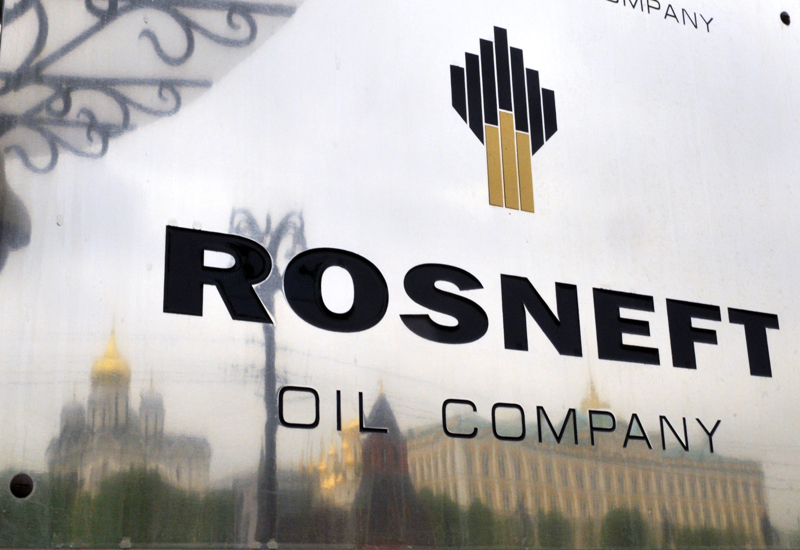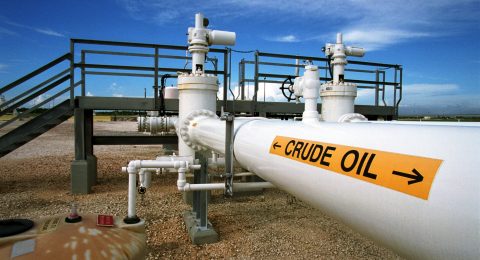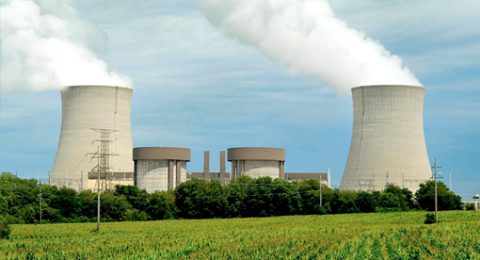Russia’s environmental watchdog has opened a case against state-owned oil corporation Rosneft after a pipeline leak resulted in oily water filling backyards and flowing out of locals’ taps in Siberia.
RN Yuganskneftegaz, a subsidiary of Rosneft, has been charged with an administrative violation of water protection regulations leading to contamination. The leak occurred last week just outside Nefteyugansk, a major oil town near the Ob river in the Khanty-Mansiysk region of Siberia, and quickly contaminated several hectares of water in the area, which has been suffering from flooding. The leak had been stopped as of Monday, the watchdog said.
A regional prosecutor is investigating the company’s actions to prevent accidents and to clean up after the spill.
Although the spill is only one of thousands that happen across the oil-exporting country’s ageing pipeline infrastructure each year, it’s proximity to the city of 120,000 has made it particularly visible. More than 10,000 oil leaks have been reported in Russia in previous years, and the Hydrometeorological Centre of Russia estimates 4.5m tonnes of oil are spilled on the Russian mainland each year, or seven times more than the BP Deepwater Horizon spill in the Gulf of Mexico in 2010.
“The fact that it’s in Nefteyugansk is a good reason to change a system that is designed not to protect the environment but rather to favour oil companies, the system for following up on oil spills,” said Yevgeniya Belyakova, Arctic project coordinator at Greenpeace Russia.
According to the environmental oversight agency, the pipeline leak started on 23 June 1km (0.6 miles) outside Nefteyugansk, releasing oil into the Cheuskin channel, part of the intricate network of rivers and streams ultimately connected to the Ob. A film of oil 1mm thick formed over a four-hectare area, although the “exact extent of the contamination, as well as the environmental damage, are being determined”, it said in a statement. Previous estimates put the contamination at 10 hectares or more.
A regional official told RBC newspaper that five to nine homes outside Nefteyugansk had been contaminated by the spill, but aerial footage of the area appeared to show dozens of small homes surrounded by black water lapping up against their walls. Locals uploaded photographs of oily water standing in their gardens and coming out of their taps.
Warning that oil could get into people’s basements and release fumes over an extended period, Belyakova called the leak a catastrophe, one which pointed to a larger problem. After the government assesses the damage from a spill, oil companies are given a choice to pay a fine or clean up the contamination, with minimal oversight of the “recultivation” programme they draw up and carry out in the affected area, she said.
“The problem is the system of control over oil drilling and how resource-extraction companies conduct themselves,” she said. “Leaking oil is simpler and less expensive than to fix infrastructure, [and] take measures so that there aren’t spills.”
According to Belyakova, most of the oil pipelines near Nefteyugansk are Soviet-built and prone to leaks. Greenpeace Russia had observed an oil leak contaminating 4 sq km at the nearby Mamontovskoye oil field that has been growing for the past 11 years, she added.












